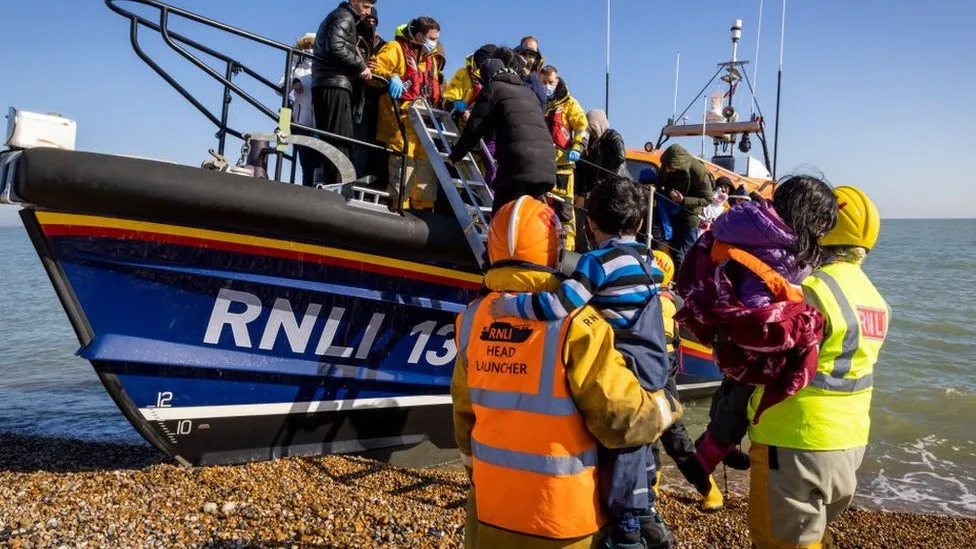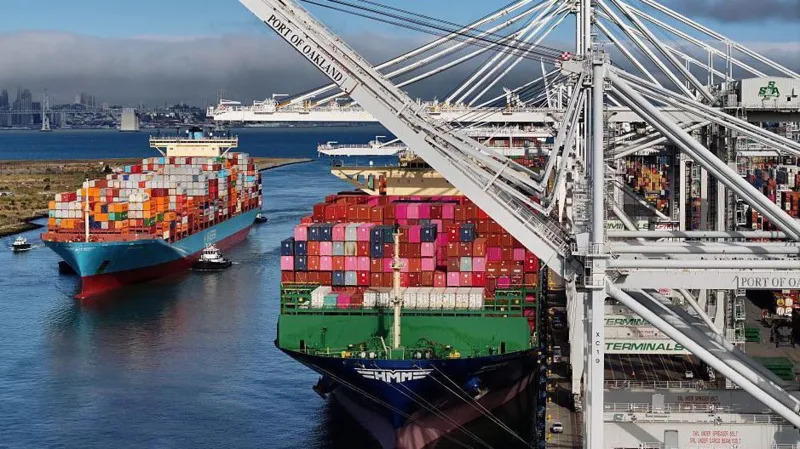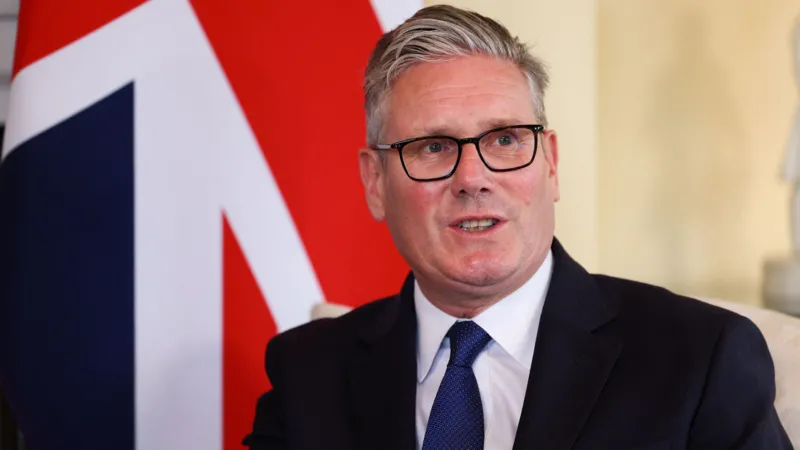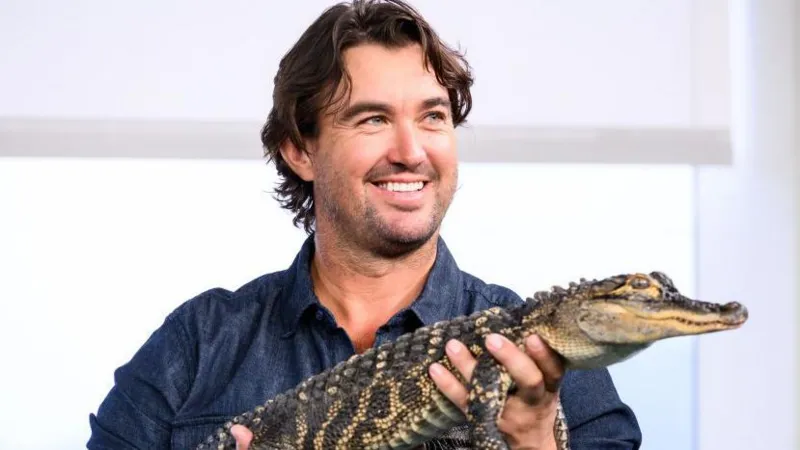Plan for lifetime ban for Channel migrants is unworkable, say charities
Government plans to ban migrants from re-entering the UK if they cross the Channel in small boats are unworkable and will leave thousands of people in limbo, refugee groups have said.

Under new legislation, channel migrants could be removed from the UK, banned from future re-entry and unable to apply for British citizenship.
Supporters say the PM is "getting a grip" on illegal migration.
The government is expected to outline the plans on Tuesday.
The slew of proposed measures will apply to anyone arriving on UK shores in a small boat, but details on the proposals are limited.
The Refugee Council has criticised the plans and accused ministers of shattering the UK's long-standing commitment under the UN Convention to give people a fair hearing regardless of how they get to the UK.
The group's CEO Enver Solomon said the new plans would "add more cost and chaos to the system", adding: "It's unworkable, costly and won't stop the boats.
"The government's flawed legislation will not stop the boats but result in tens of thousands locked up in detention at huge cost, permanently in limbo and being treated as criminals simply for seeking refuge," he said.
PM Rishi Sunak, who has made "stopping the boats" one of his top priorities, told the Mail on Sunday: "Make no mistake, if you come here illegally, you will not be able to stay."
The new legislation would place a duty on the home secretary to remove anyone arriving on a small boat to Rwanda or a "safe" third country "as soon as reasonably practicable" and ban them from returning permanently.
Currently, asylum seekers coming to the UK have the right to seek protection under the UN's Refugee Convention and the European Convention on Human Rights.
But the Mail on Sunday says a clause in the Illegal Migration Bill is expected to apply a "rights brake" to effectively allow the conventions to be circumvented.
Cabinet minister Michelle Donelan said on Monday the government was "getting a grip" on illegal migration.
"This week we will be bringing forward additional legislation, which is based on the principle that if people travel here via illegal routes they shouldn't be allowed to stay, which I think is common sense and right and the correct approach," she told BBC Breakfast.
The science secretary promised that more "safe routes" for asylum seekers would be set up, but failed to name any when pressed.
Science Minister George Freeman said Home Secretary Suella Braverman had made the principle behind the plans "crystal clear".
"If you come here illegally, exploiting illegal systems to escape into the UK, it won't be possible," he told BBC Radio 4's Today programme.
However, Labour's Wes Streeting said the government's upcoming measures were "just the latest in a long line for unworkable gimmicks".
The shadow health secretary said the government should instead ensure there were safe routes into the country for asylum seekers, speed up the processing of asylum claims and crack down on trafficking gangs.
"We've put forward our own proposals - taking the hundreds of millions of pounds that would be wasted on the Rwanda scheme, put it into the National Crime Agency so that we can start rounding up and arresting the criminal gangs that are trafficking people," he told BBC Breakfast.
Mr Streeting added he did not think the proposed measures would "see the light of day" or get through Parliament.
More than 40 migrants were brought to shore by a lifeboat in Dover on Monday morning.
The government has long been trying to tackle the rise in numbers of asylum seekers making the dangerous crossing in small boats from France to the UK.
However, it is not clear how exactly the government is proposing to limit the rights of asylum seekers.
Nor is the pledge to deport asylum seekers straightforward.
Despite a deal being reached last year, not one migrant has been sent to Rwanda yet and any plans to do so are currently on hold. And there is no returns agreement in place with the EU.
The Rwanda plan has yet to get under way after it was met with fierce opposition from campaigners and legal interventions.
In December the High Court ruled the scheme did not breach the UN's Refugee Convention. But that decision is facing further challenges in the courts, with a preliminary hearing expected on Monday at the Court of Appeal.
The home secretary, who will introduce the new laws, told the Sun on Sunday "the only route to the UK will be a safe and legal route".
The Home Office says there are a number of "safe and legal" routes to the UK. However, some are only available to people from specific countries such as Afghanistan and Ukraine, or for British National status holders in Hong Kong.
Other asylum routes only accept a limited number of refugees according to precise criteria.
The Lib Dems called the plans "immoral, ineffective and incredibly costly for taxpayers while doing nothing to stop small boat crossings".
Freedom from Torture, a charity which provides therapy to asylum seekers, called them "vindictive and dysfunctional".
And Steve Valdez-Symonds, from Amnesty International, described the plans as "disgraceful posturing and scaremongering".
The government has previously said the Rwanda plan would discourage others from crossing the English Channel but so far there is no evidence that has happened.
In 2022, 45,756 migrants crossed the English Channel to Britain in small boats, according to government figures collated by the BBC.
That is the highest number since the first records in 2018.
Latest Home Office figures show 2,953 migrants have crossed the Channel using this method already this year, originating from a range of countries including Albania, Iran, Iraq, Afghanistan and Syria.
-bbc







